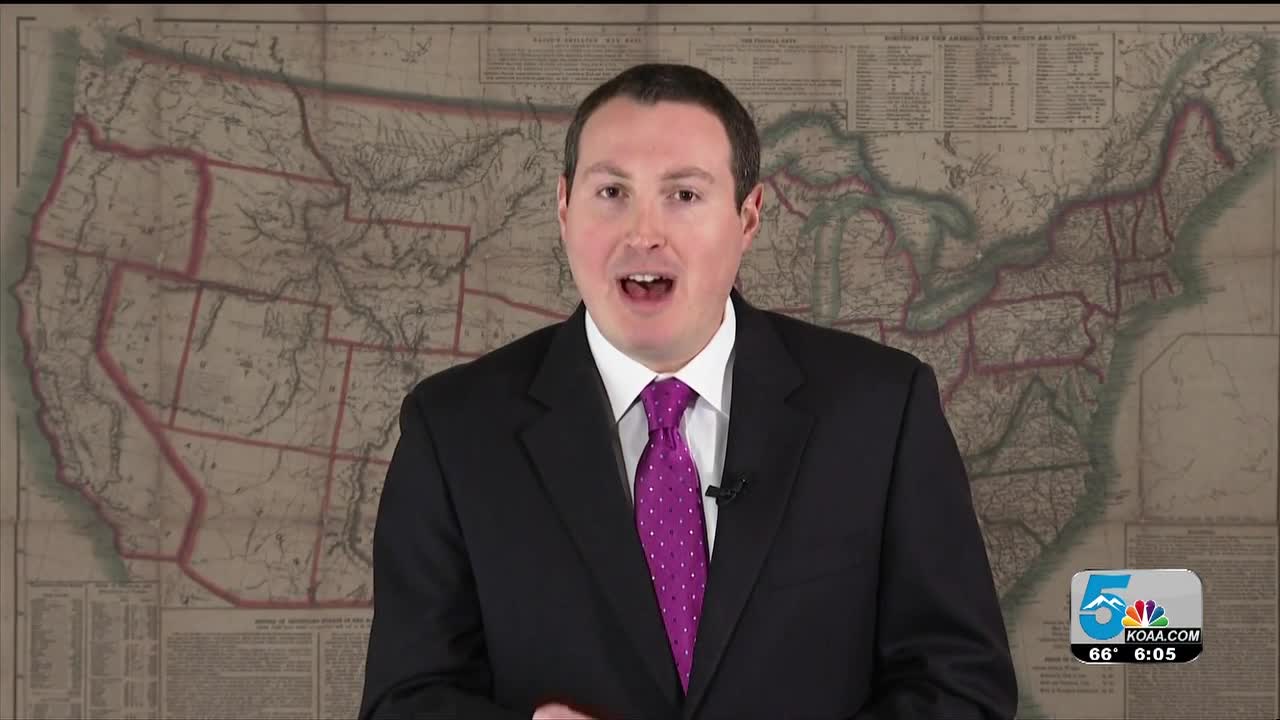Early Wednesday, Senate leaders have struck a deal and agreed to a $2 trillion Coronavirus stimulus package---the largest in U.S. History.
The bill hopes to limit the affects from this ongoing pandemic.
People have lost their jobs, businesses are closed and finding new employment has been difficult for some job seekers.
Breakdown of stimulus package:
-$100 billion: Relief funding for hospitals
-$200 billion: Domestic priorities like transportation, child care, senior citizens and Veterans
-$500 billion: Corporate loans
-$350 billion: Small business rescue package
The bill will also provide a one-time $1,200 check to Americans who make $75,000 a year or less.
The Secretary of the Treasury says President Trump will "absolutely" sign it.
Meanwhile, President Donald Trump hopes the country will be back up and running by Easter next month.
Health officials aren't sure whether that will be possible.
"You have to be very flexible on a day by day and week by week basis," Dr. Anthony Fauci, Trump's task force adviser said. "You need to evaluate the feasibility of what you're trying to do."
President Trump also said the economic instability caused by the Coronavirus could prove worse than the pandemic itself.
He hopes the money from the stimulus package will help the market rebound. This comes as Gov. Jared Polis announced a "stay at home" order for all Coloradans which begins 6:00 a.m. Thursday, March 26 and expires April 11.
Direct cash payments:
Individuals making $75,000 a year or less are eligible to receive a check for $1,200. Couples making no more than $150,000 would receive $2,400, with an additional $500 per child.
The payments would decrease for individuals who earn more than $75,000, with an income cap of $99,000 for individuals or $198,000 for couples.
Eligibility and unanswered questions:
It's still unclear at this time how the government will determine eligibility for the cash payments. Some Americans still have not filed their 2019 tax returns and with the deadline extended, the checks could go out before someone is able to file their returns.
Update (March 26, 2020): The IRS will determine eligibility based on the individual’s 2018 or 2019 tax return. If a taxpayer hasn’t filed those yet, they will need to do so, in order to receive their payment.
There's still no exact date as to when the checks would be sent to Americans. Keep in mind, the bill still has to be voted on by the Senate and House before it goes to President Trump for a signature.
Update (10:00 p.m. March 25, 2020): The Senate has approved the bill. It now goes back to the House for a vote and then will go to the President.
Expanded unemployment insurance:
The 2020 stimulus bill drafted as a result of the Coronavirus would increase the maximum state unemployment benefit by $600 per week for up to four months. This would be in addition to state benefits those unemployed individuals may receive.
If approved and signed by President Trump, the unemployment benefits would also extend to people who typically wouldn't qualify, like furloughed employees.
People nearing the end of their unemployment timetable could be eligible to have their benefits extended by a little more than 3 months, or 13 weeks.
"Extended benefits are available to workers who have exhausted regular unemployment insurance benefits during periods of high unemployment," the U.S. Department of Labor said on its web site. "The basic extended benefits program provides up to 13 additional weeks of benefits when a State is experiencing high unemployment. Some States have also enacted a voluntary program to pay up to 7 additional weeks (20 weeks maximum) of extended benefits during periods of extremely high unemployment."
Help for small businesses:
Companies, agencies and organizations with less than 500 employees may qualify for "forgivable" small business loans. The hope is that this will allow those companies to continue to pay their employees and not let them go.
There is also the possibility for assistance with paying mortgage interest, rent and utilities bills for businesses who continue to retain and pay current workers.
Aid for corporations:
$500 billion has been set aside to provide assistance to struggling corporations like the airline industry, which has been hit hard by the COVID-19 pandemic.
Under the agreement, businesses and organizations with direct connections to President Trump, Vice President Mike Pence and members of congress will not be eligible to receive this aid.
Assistance for hospitals and medical facilities:
$100 billion has been earmarked for hospitals and medical care. As we've reported, many hospitals including those in Colorado are in short supply of key items like ventilators, gloves and face masks.
State assistance:
$150 billion is earmarked to provide stimulus funds for state and local governments to help boost their struggling budgets.
"The $150 billion in the Coronavirus Relief Fund is mostly allocated by population," TaxFoundation.org reports. "Local governments with populations of 500,000 or more are also eligible for aid, and any aid they receive is subtracted from the amount otherwise available to their state's government. This too is apportioned by population, but localities may only receive 45-percent of the amount associated with their population."
According to TaxFoundation.org, Colorado is eligible for up to $2.23 billion from the Coronavirus Relief Fund.
Source: Taxfoundation.org
You can see how other states rank by clicking here.



